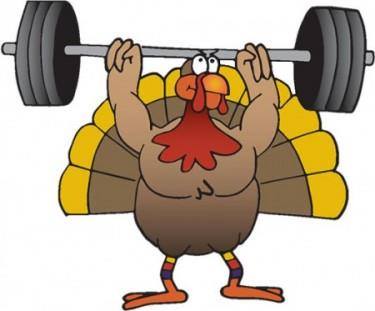Finding yourself feeling a little hangry?
Struggling to stay on your diet?
These are really common complaints for people who are having a hard time with managing their hunger while dieting.
Regardless of your diet plan – keto, paleo, intermittent fasting, etc. – getting into a caloric deficit is going to be a necessity at some point to start getting your weight off.
With that caloric deficit usually comes huger.
Some people are able to naturally eat less without much trouble. Those people are outliers and the ones most people hate. For the vast majority, being hungry sucks and is one of the most common reasons people fall of their weight loss journey.
You’ll hear people talk about how you just have to be mentally strong and resist the urge to eat – this is generally pretty crappy advice. While there is some merit in resisting urges at times, there are so many options to help you reduce hunger that just ignoring it should not be first line advice.
Here are some choices to start trying:
1. Drink more water
If you’re feeling hungry, water can be a good option to help fill up your stomach and hopefully reduce your urge to eat. Even if it’s just a short term strategy, it can be really helpful for delaying eating until your next meal. It can also be a good way to help calm urges to go off your current plan.
A lot of people find that drinking 1-2 cups of water with meals also helps in reducing volume of meals. For people who are eating out a lot where controlling meal size or quality can be hard, this can be a clutch strategy to cut down on finishing the whole meal.
2. Eat more protein
Kicking your overall protein intake up can be a very effective option for reducing hunger. Protein is very satiating and can cut down on total caloric intake effectively. Just try to shift over some of your calories from fats or carbs onto proteins.
There are tons of options for this given your food choices – egg whites, chicken breast, low fat Greek yogurt, lentils, etc.
General recommendations for those who are active and weight training is to get around 0.7-0.85 grams per pound of body weight. Most people will top out their protein intake around 1 gram per pound of body weight – and getting up there can be really helpful for managing hunger.
3. Up the fiber
Fiber helps with hunger for a few different reasons. Fiber rich foods are usually less calorically dense – helping fill your stomach. As well, fiber slows down how fast foods are digested and absorbed, delaying them from leaving your stomach and intestines – keeping hunger at bay longer.
4. Acknowledge your intake
It’s easy to sit down with food, start eating, and then realize you’re done. We get easily distracted eating – watching TV, reading blogs (haha), or mindlessly scrolling. Help combat this by taking at least a few moments and recognize what you’re eating.
As well, try to get a good grasp of what you’re actually intaking. This is especially valuable for people who have little to no experience with food tracking. Most people have no idea the caloric intake of what they’re eating. Not everyone needs to track their calories meticulously, but if you don’t know the difference between kale salad with balsamic dressing that contains 200 calories and the chef’s salad with ranch dressing with 1200 calories – you’re in trouble.
5. Slow it down
Building off that last point, if you’re scarfing down your food, you can be at risk of eating even more than necessary to fill you up. This was a huge one for me and really helps me cut back a bit.
It can be as simple as putting down your fork and having a sip of water between bites. By slowing down you give your stomach time to recognize what you’re putting into it and create the hormonal cascade that tells you you’re full.
6. Eat whole foods when possible
Here’s the thing, volume is your friend when it comes to dieting. In general, a whole food source or a solid over a liquid will provide you with more volume generally in relation to calories.
This may mean shifting from having that post workout shake to some other option, or cutting back on the liquid calories from things like soda or additives to coffee.
7. Get spicy
Spicy food has been found to be beneficial in reducing hunger. The exact mechanism isn’t nailed down, but it’s likely a compound effect of the heat and flavoring.
Fortunately most spices or hot sauces are calorie free, so feel free to be generous if you can tolerate it.
8. Fast
Intermittent fasting has been a very fast growing diet. One of the best things about the diet is condensing the time frame in which you consume calories as it can allow for more filling meals.
This is not meant for everyone, but if you find yourself not that hungry in the morning but very hungry at night – shifting your calories from earlier in the day to later can be a solid choice.
Keep it simple and start by just taking some of your calories from morning meals to later in the day. Then progressively move your first meal later in the day if you find it’s helpful.
9. Sleep more
Not an obvious one, but sleeping more has been found to be very effective at managing hunger. This may be for the fact that you’re awake less, or it might be that sleep helps to delay the hunger pathway from triggering – we aren’t sure. However, there are studies demonstrating increase sleep 30minutes or more has been able to reduce someone’s hunger and help with weight loss.
10. Stress relief
It’s really common for people to use eating as an outlet. This may be subconscious or conscious, but regardless it’s a hard one to control.
Instead of trying to force yourself to not eat when you feel stressed out, trying to manage life factors to not make you feel that way can be huge. This is a topic that is hard to condense into a small section, but we wanted to at least touch on it as it’s one a lot of people should consider reflecting on.
Hope these little options will help you out on your path to success. If you find yourself struggling still after implementing them, definitely feel free to reach out to us and we can either help or connect you with someone who can!
The Citizen Athletics Team,
Sam


